Professors pitch ideas as they swim with the sharks
The event, held on Northeastern’s Boston campus, is a “Shark Tank-style” forum where faculty members present ideas to judges.

Northeastern University professor Nada Sanders started with the numbers.
Corporations across the world are expected to invest roughly $350 billion in artificial intelligence by the end of the year, Sanders said, up from $252.3 billion in 2024.
Then came the kicker.
“What’s interesting, if you look at all the research, is roughly 80% of these initiatives do not reach their goals,” said Sanders, a distinguished professor of supply chain and information management at Northeastern. “My research is focused on identifying and understanding organizational factors that drive effective AI selection and implementation.”
Sanders was one of a dozen faculty members at Northeastern who recently participated in the second annual D’Amore-McKim School of Business (DMSB) Day.
The event, held on Northeastern’s Boston campus, is a “Shark Tank-style” forum where faculty pitch ideas on how to transform business to panels of judges made up of alumni corporate leaders. Winners received a $5,000 cash prize courtesy of Jasper Lau, DMSB graduate and CEO and founder of global investment firm Era.
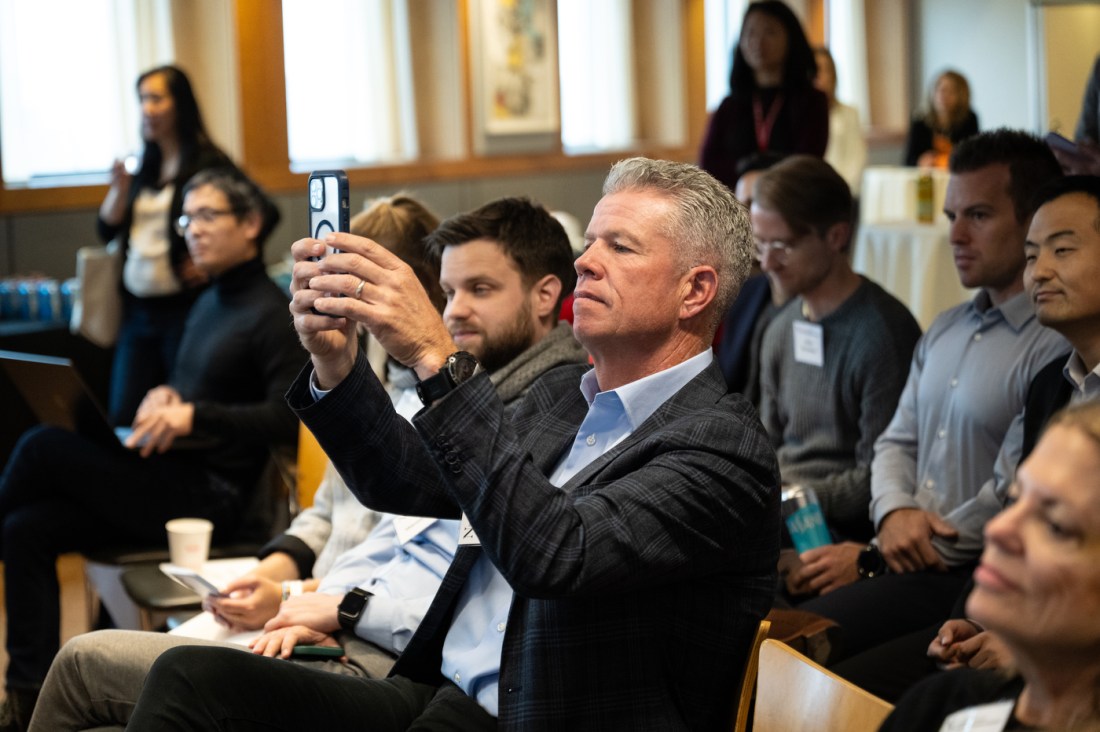
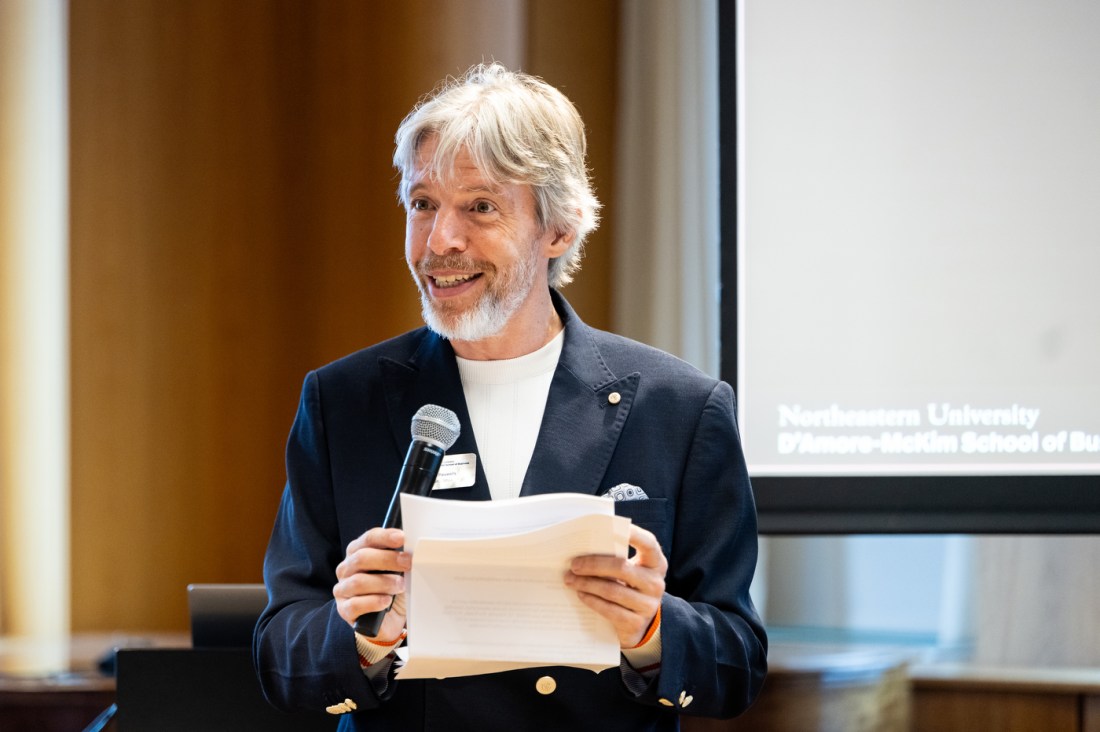


“We said to the faculty, ‘what is your best idea?’” explained David De Cremer, dean of D’Amore-McKim. “With DMSB day, we bring these ideas that we dream about into impact, into ideas that resonate.”
The ideas showcase the breadth and depth of expertise among Northeastern faculty.
In addition to Sanders’s pitch to develop a framework or “contextual filter” to help companies decide where best to invest in AI, Nathan Seegert, Philip R. McDonald Chair professor of finance, proposed developing the “first comprehensive bank-county-year dataset” to analyze the geography of credit markets.
Kwong Chan, a senior academic specialist in marketing and executive director of the DMSB AI Strategic Hub, was awarded the best idea to invest in for pitching a technology that uses AI to measure, iterate and improve human learning.
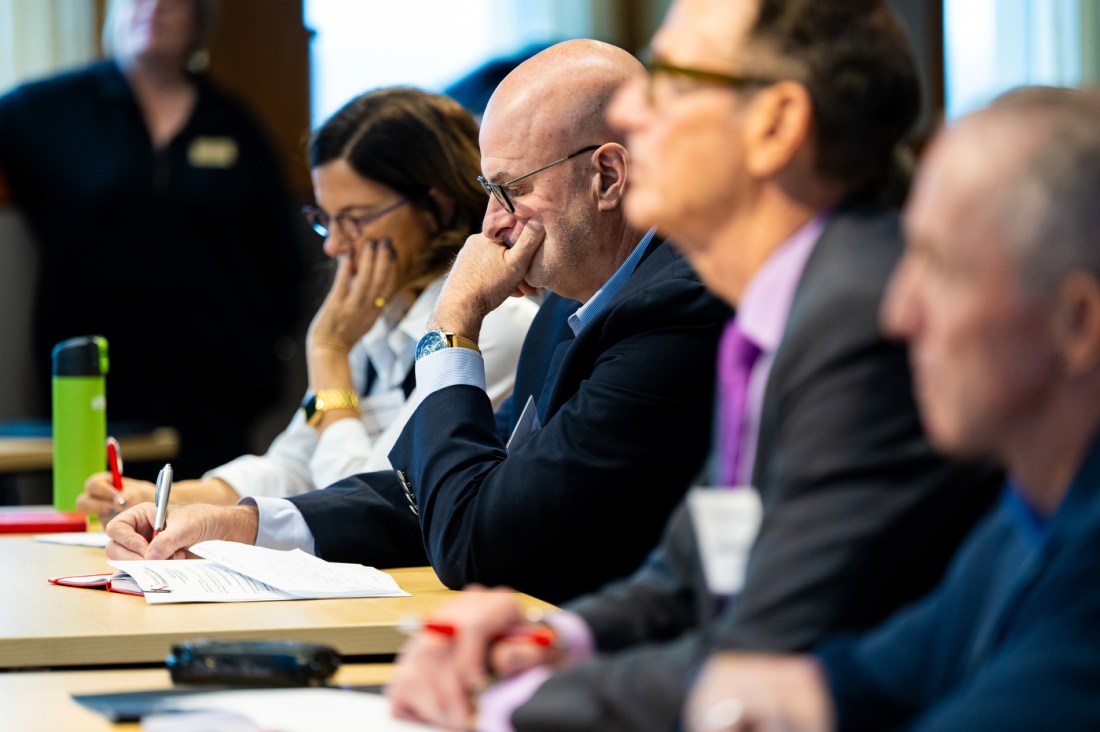
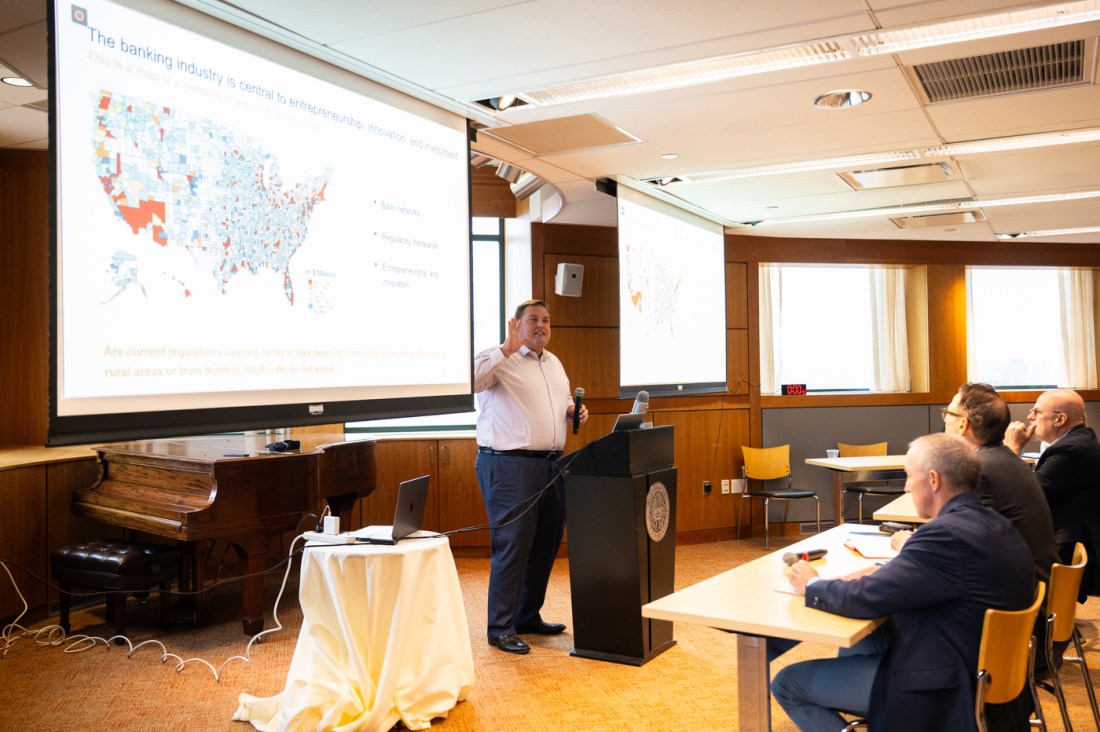
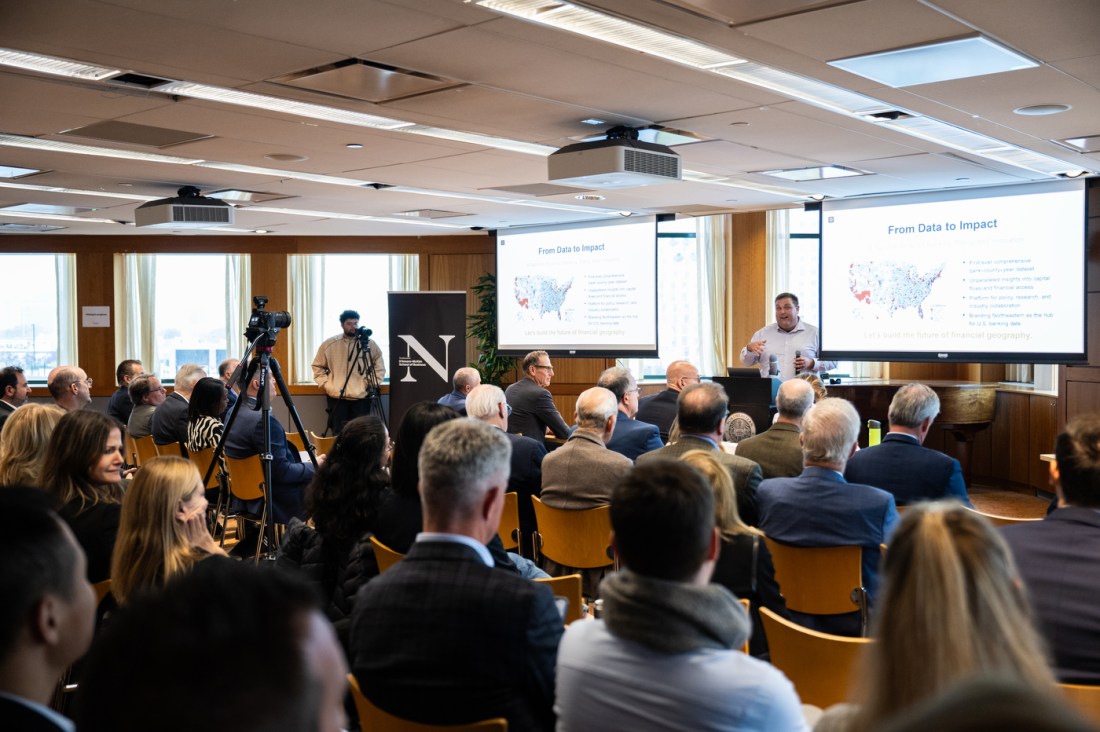
Curtis Odom, associate teaching professor of management and organizational development, garnered the best speaker/presenter award with a proposal to redesign his management consulting course into a “Practitioner-Informed Research Collaborative” in which students pilot diagnostic tools with partner organizations, conduct executive interviews and co-author thought leadership.
Finally, Jen Guillemin and Michelle Zaff, both senior co-op coordinators at DMSB, were awarded the best idea for social impact for their proposal to teach AI literacy in an experiential learning course that brings students into the Suffolk County Jail to teach career design and entrepreneurial skills to incarcerated individuals.
Judges said they were impressed with the event and quality of the pitches.
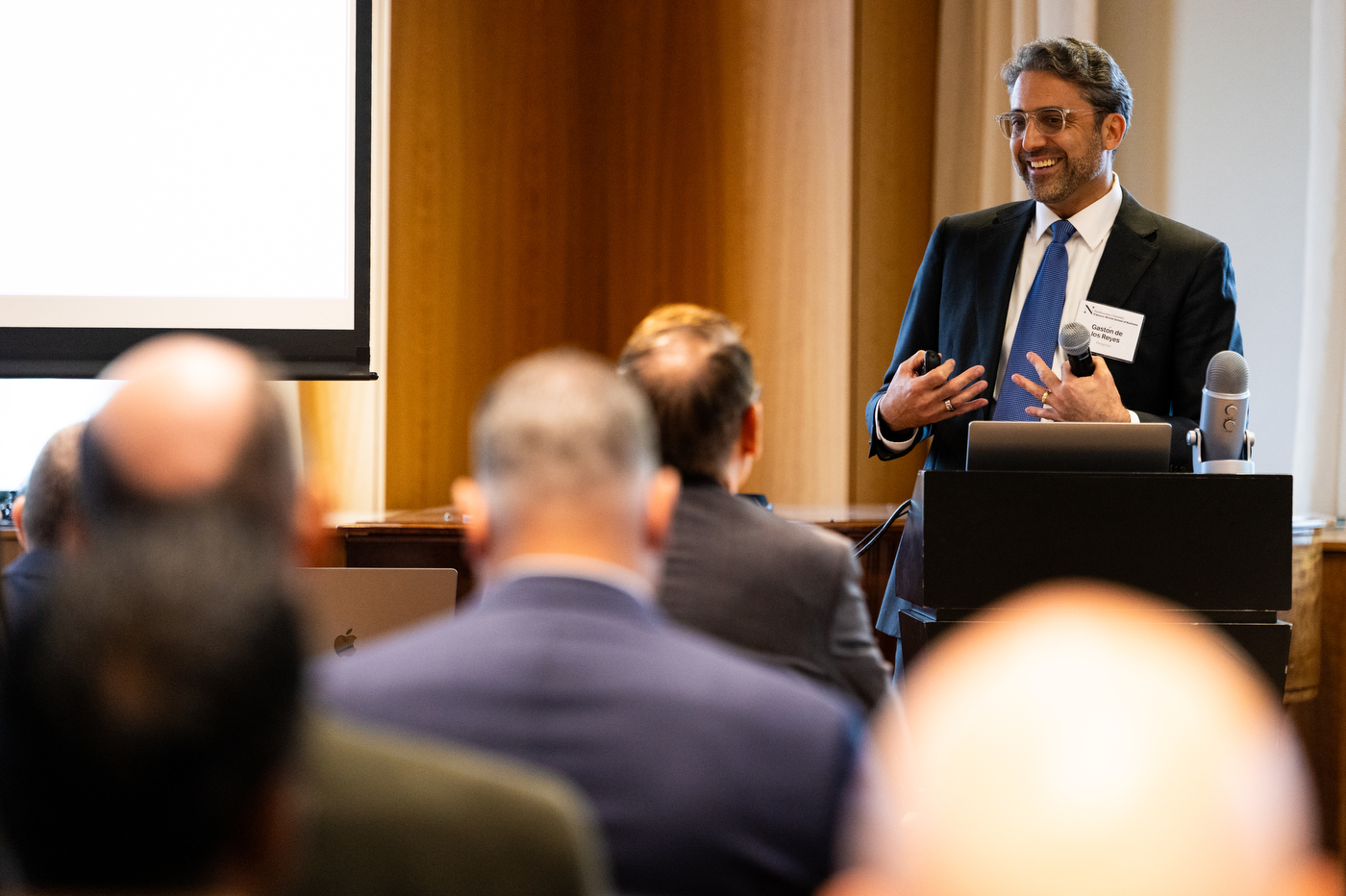

Craig Heisner, senior director of global wellness and vertical markets at New Balance as well as the vice chair of the DMSB Boston Executive Leadership Council, said the day was “an amazing experience.”
“I leave here a lot smarter than when I came here,” said Heisner, who earned his master’s of business administration at Northeastern. He also specifically praised faculty members for their knowledge of the potential of AI.
MBA graduate Tieisha Smith, vice president of workforce modernization at TIAA insurance and the vice chair of the Texas Executive Leadership Council, said her favorite presentations involved pitches that were focused on students.
“I am so impressed by what I saw today,” Smith said.





